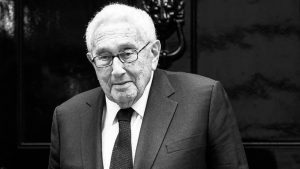Ethiopian Prime Minister Abiy Ahmed, winner of last year’s Nobel Peace Prize, has waged a war in country’s northern Tigray region. PM Abiy launched a military offensive in the restive region after accusing the region’s ruling Tigray People’s Liberation Front (TPLF) of attacking the federal government’s defense posts and attempting to steal artillery and military equipment, The New York Times reported.

The latest conflict in the ethnically diverse African nation has left hundreds dead and has forced 27,000 people to take refuge in neighbouring Sudan, AFP reported. The United Nations has warned against a ‘full scale’ humanitarian crisis unfolding in the populous nation.
Also read: Amnesty reports ‘massacre’ in Ethiopia’s Tigray region
A History
Tigray is one of the 10 semi-autonomous federal states organised along ethnic lines. Although Tigrayans comprise just 6.1% of the country’s population, much smaller than the ethnic Oromos (34.6%) and the Amharas (27.1%), they have exercised widespread power. Current PM Abiy is an Oromo.
Although he has waged a war against the TPLF, the party has ruled over the nation for 27 long years and Ahmed first came to power in 2018 as a part of a coalition in which the TPLF was the dominant political power
TPLF, the Red Terror and Meles Zenawi
In 1974, Ethiopian emperor Haile Selassie was overthrown and a military junta, known as the Derg came to power. This military regime waged what is known as the ‘red terror’, which left tens of thousands dead.
The TPLF was founded in 1975 as a resistance unit of the Tigrayan people against the brutal military rule.
The Derg was finally defeated in 1991 by the Ethiopian People’s Revolutionary Democratic Front (EPRDF), a coalition led by the TPLF, BBC reported.
TPLF leader Meles Zenawi came to power in 1991 and served as the country’s interim president till 1995. He served as Ethiopia’s PM from 1995 until his death in 2012.
Ethiopia under Meles Zenawi
The Horn of Africa nation made massive economic progress under Meles Zenawi-led EPRDF rule. The child mortality rate fell sharply, the country didn’t face any famine during this period. Zenawi is considered the founder of the ethno-federalism of modern Ethiopia.
However, despite such progress, the government turned increasingly authoritarian and democracy couldn’t take roots. Many felt silenced. Many argued that the ethnic Tigrayans dominated the several spheres of power for their own benefit, according to BBC.
Abiy Ahmed comes to power
A former military intelligence officer, Abiy Ahmed became Ethiopia’s PM in 2018. He was a part of the EPRDF, which apart from the TPLF, contained other regional parties, such as the Amhara Democratic Party, the Oromo Democratic Party and the Southern Ethiopian People’s Democratic Movement.
In November 2019, Ahmed dissolved the EPRDF and formed a new Prosperity Party.
The same year, he won the prestigious Nobel Peace Prize for making peace with the neighbouring Eritrea
Eritrea-TPLF animosity

A significant part of TPLF’s resentment has to do with Ahmed making peace with Eritrea. Tigray shares a long border with Eritrea and the TPLF has fought a prolonged war with Eritrea.
The TPLF has accused Eritrea of backing Ahmed’s offensive. Leader of the Tigray region had confirmed on Sunday that his rebels had fired rockets at Eritrea’s capital Asmara, the previous day.
Tigray holds elections
In August, the Prime Minister postponed the parliamentary elections, citing the COVID-19 outbreak. Defying his decision, the Tigray region held its own election.

Such defiance was significant in a country with regional states managed around ethnic lines and each state having the right to self-determination.
The TPLF on November 3 launched an attack against the federal military command stationed in the Tigray region. PM Abiy led federal government retaliated. On Tuesday, the leader vowed the military operations in the northern Tigray region would enter a “final” phase, AFP reported. Meanwhile, there is a concern of Ethiopia heading towards a civil war.






